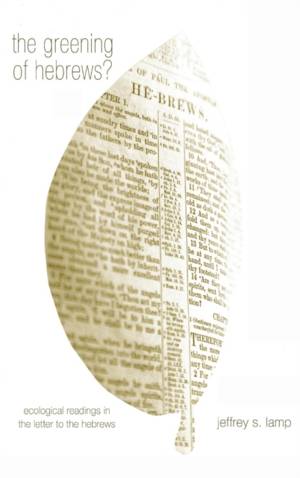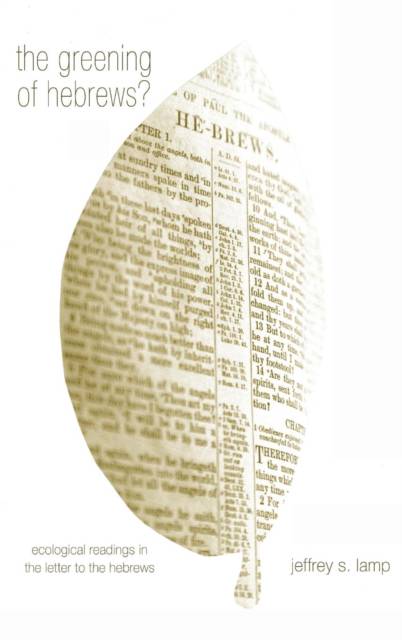
- Afhalen na 1 uur in een winkel met voorraad
- Gratis thuislevering in België vanaf € 30
- Ruim aanbod met 7 miljoen producten
- Afhalen na 1 uur in een winkel met voorraad
- Gratis thuislevering in België vanaf € 30
- Ruim aanbod met 7 miljoen producten
Zoeken
Omschrijving
Applying an ecological hermeneutic developed in the Consultation on Ecological Hermeneutics of the Society of Biblical Literature, and in conjunction with intertextual and theological hermeneutics, Jeffrey Lamp creatively reads the Letter to the Hebrews from the perspective of Earth. The author of Hebrews engages in an extended argument that reinterprets features of the old covenant in terms of the Son in order to demonstrate that the new covenant instituted by the Son is superior to the old. In such an argument, the voice of Earth is understandably absent. The author of the letter is frequently understood as denigrating the temporal order, of which the old covenant is a part, while praising the eternal order, of which the new covenant is a part. An ecological reading of Hebrews demonstrates that, despite the rhetorical concerns of the author, embedded in the argument are textual clues, derived primarily from the christological affirmations of the argumentation, connecting Hebrews with the larger biblical concern for the integrity and care of the created order.
Specificaties
Betrokkenen
- Auteur(s):
- Uitgeverij:
Inhoud
- Aantal bladzijden:
- 146
- Taal:
- Engels
Eigenschappen
- Productcode (EAN):
- 9781498261531
- Verschijningsdatum:
- 11/07/2012
- Uitvoering:
- Hardcover
- Formaat:
- Genaaid
- Afmetingen:
- 152 mm x 229 mm
- Gewicht:
- 367 g

Alleen bij Standaard Boekhandel
+ 113 punten op je klantenkaart van Standaard Boekhandel
Beoordelingen
We publiceren alleen reviews die voldoen aan de voorwaarden voor reviews. Bekijk onze voorwaarden voor reviews.











